Student Blog
Classes
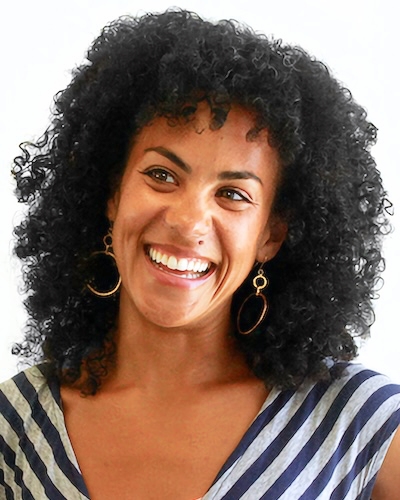
Finals Week! ⟩
December 12, 2013, by Ryan
Classes
Whoa! It is finals week, ya’ll, and it is no joke! Of course, I had the sit-down, typical, multiple choice exams for 3 of my classes. But I have also had projects and papers for a few of my other classes. And that has been such a positive experience. First one was on Friday for Dr. Fazio’s OT 570 Occupation-Centered Programs for the Community class. Our big project was to go through the steps to develop a mock-proposal for a service that is needed for a particular population out in the community. The cool part is that after we graduate, we have all the materials done to actually implement these programs and some alumni have! So for this project, you could work in a group or solo. I was very passionate about a certain population (and no one else was), so I worked by myself. I realized quickly that this was a bit difficult to do on my own, but it was worth it. The final for this class was the written proposal as well as a poster presentation to the department staff and faculty. Sound intimidating, right? But it wasn’t. I really enjoyed making my poster and it came out quite nice. I enjoyed sharing my project because I think it could really benefit people and also viewing other posters from my classmates was amazing and I saw a lot of creative ideas for so many different populations. My project was relating to older adults (between 50 and 70 years of age) who are healthy and still able to work. I was interested in their experience with unanticipated or early retirement. For individuals going through this huge life event they can lose their confidence, social connections, and financial support as well as purpose that gets them out of bed and sense of contribution to society. Especially with the baby boomer generation increasing the amount of older adults in our society, there is not enough support or services to deal with this issue. I was proud to contribute this idea as well as see how smart and wonderful my classmates are. Yay OT, USC, & Dr. Fazio!
FYI, here is my first attempt (since I am the worst with technology) to add a photo 😊
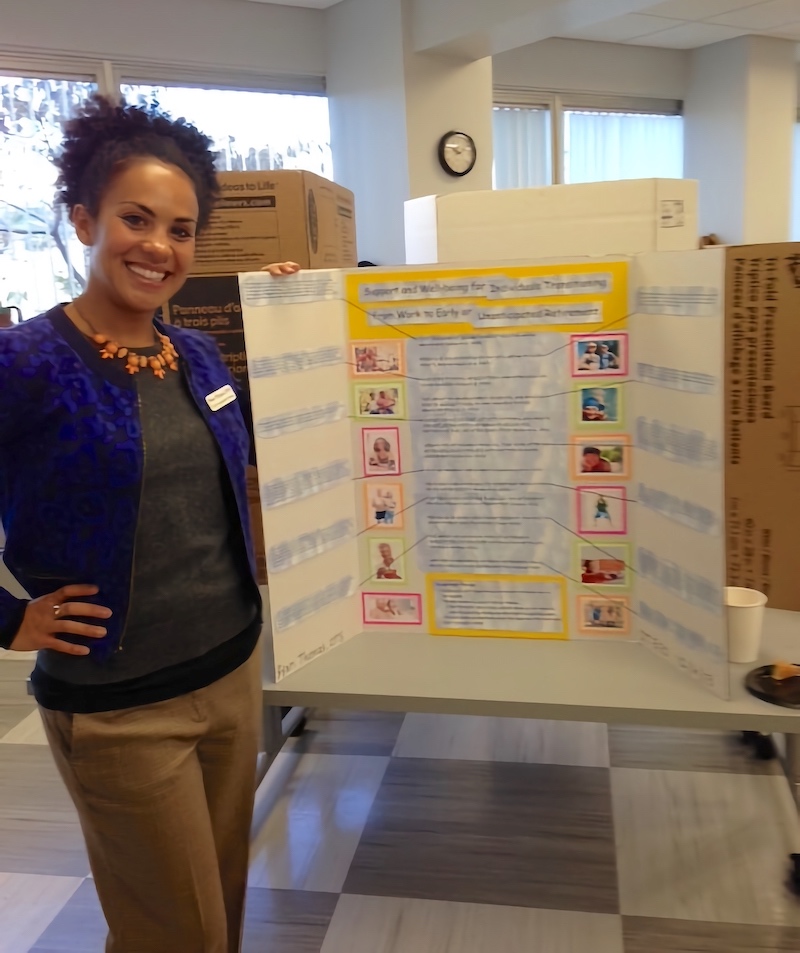
⋯
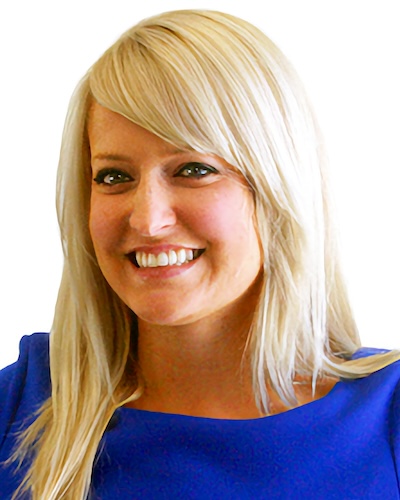
Prepping for the Practicum!! ⟩
December 11, 2013, by Kate
Classes
I just finished the last exam for our adult physical rehabilitation immersion course and my brain is officially mush. It was a 75-question multiple choice test covering the last 4 weeks of our semester. We also had a documentation practicum where we had to write a SOAP note (a type of progress note covering a treatment session). I studied a lot for this last exam and I’m hoping my hard work paid off. I have to remain clear-headed, however, because tomorrow at 8 am I have the practicum portion of the final!
The practicum is a portion of our exam where the students must prepare for a simulated treatment session and role-play an intervention with another student. We are given four case studies to choose from, and we select one case upon which to write a long-term and short-term goal and a treatment session plan. The students meet tomorrow at different times, are paired up with a random student, and perform the treatment session in front of a faculty member.
A bunch of the students got together right after our exam this morning to practice going over the practicum. We exchanged ideas and shared creativity in designing our treatment sessions. It is pretty stressful to prepare something like this and role play in front of a professor who teaches us for a living, but it’s still nice to know we are all in the same boat.
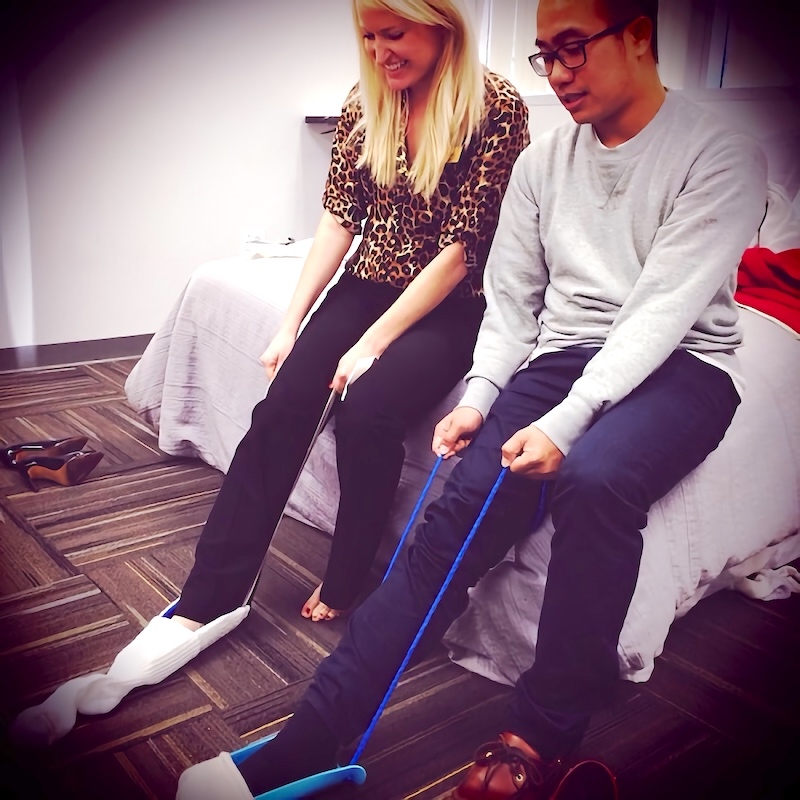
Here’s a picture of me and my classmate, Dennis, using sock-aids in our practice treatment session. Wish me luck!!!
⋯

Thanksgiving is OVER . . . Back to the Grind! ⟩
December 2, 2013, by Kate
Classes School/Life Balance
Wow! Thanksgiving break was fabulous! It was very much needed! As I mentioned in a previous blog post, I headed to Colorado for a ski weekend with my parents. It was glorious!! The mountain recently opened for the season, so only a few runs were open on the front side of the mountain. The snow was a little crusty and icy, but it was great to get out and be active in nature. The beauty of Mother Nature and the crisp air rejuvenated me. Getting some physical exercise in, even at 10,000 feet, was great. And skiing with my dad is one occupation that we have enjoyed together since I was 2 years-old (27 years of being ski buddies!). We also enjoyed cooking together and had a great Thanksgiving dinner, complete with pumpkin pie made from a REAL pumpkin! All in all, a great vacation, filled with fun, food and a little bit of studying.
That’s right, I wrote “studying.” It’s easy to forget that you have things due this week when you’re having fun. But alas, it’s the nature of the grad-school beast. First up, a test today in our Health and Wellness course! I really enjoy this class, so I am not too worried because I am interested in the material. This Friday is our last day of classes. We have our poster presentations in our class on Occupation-Centered Programs for the Community. We have been working all semester on identifying a population in need of program development, performing a needs assessment, and creating a program that would is unique and fulfills the needs of the community. We also have a final paper due on Friday in our Health and Wellness class that includes research, a case study on one health and wellness variable, and an intervention plan. Sounds like a whole lot!!! And it is. But then I remember that this is the last week of classes and finals start next week!
Thankfully, I feel refreshed and rejuvenated from my mini-vacation and I am ready to get back to the grind and conquer all that I have due this week! Bring it on!!
Here’s a picture of my dad and I getting ready to hit the slopes! I hope everyone had a great Thanksgiving!
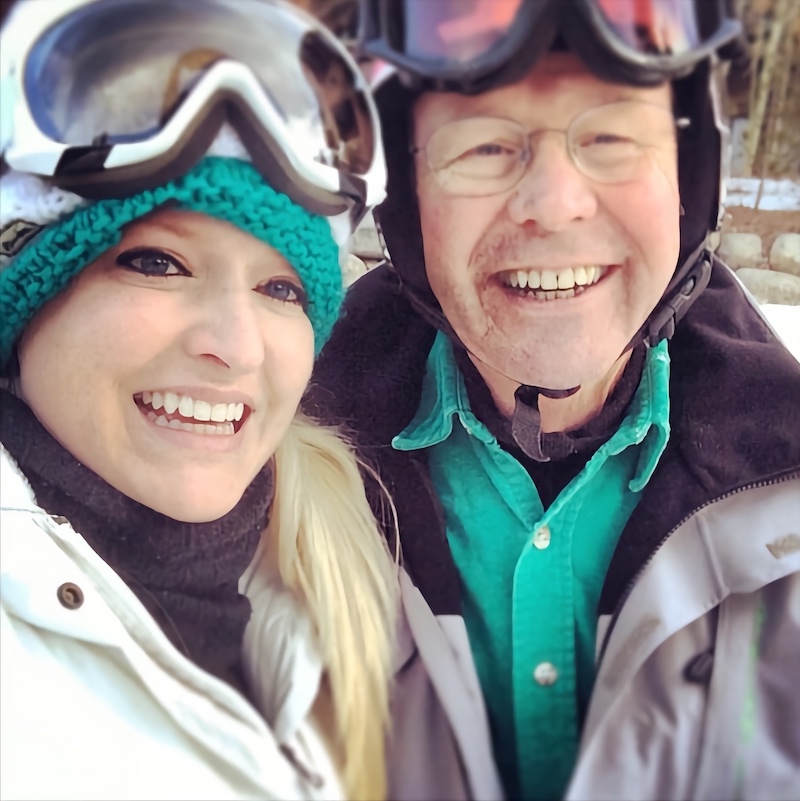
⋯
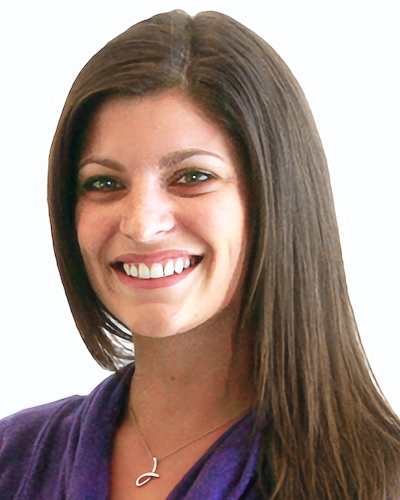
Preparing for Electives ⟩
November 21, 2013, by Jen
Classes
In USC’s MA-II program, the final semester predominantly consists of elective courses. The classes offered include: sensory integration theory, ergonomics, hand rehabilitation, dysphagia, and many more. There are so many fantastic choices, that it is going to be difficult to decide which courses to take. I plan to work in a pediatric rehabilitation setting upon graduation, so I am going to take electives that best support my professional development in that area. It is hard to believe that graduation is only 5 short months away. It feels like just yesterday that I was sitting in kinesiology meeting my classmates for the first time!
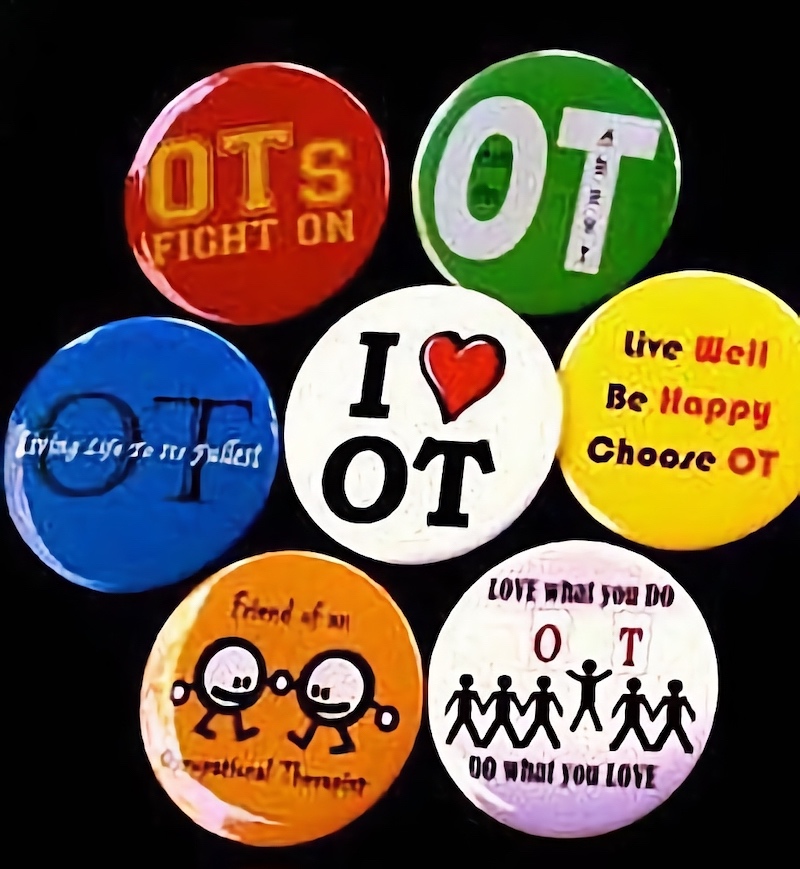
⋯

Class Project ⟩
November 18, 2013, by Ryan
Classes What are OS/OT?
I recently had to interview an older adult (65+) and write a paper about their changes in roles, responsibilities, and occupations. I interviewed Walter (fake name for privacy purposes) who is actually my dad. In order for me to fit in this interview, I chose to interview my father and I know very little people over 65 years old. My grandparents have all passed away; I have a great-aunt and 2 friends but could not coordinate schedules . . . so it ended up being my 66 ¾ year old dad. And I am so glad it worked out this way. I did not grow up with my father and have built a relationship with him as an adult so I enjoyed sharing this time with him. I also don’t get to see him that often and I learned a lot about his past.
I don’t think he really understood that I was interested in his activities/occupations but he shared a lot about his views and interests throughout his life. He was very politically involved and had interest in the Black Panthers which was very surprising to me. I have rarely seen my dad mad, or even mean to a single person. He is the sweetest, fun loving guy and I could not see him relating to violence. He explained that he grew up in Los Angeles in the 1960s and ‘70s, around gangs and violence so that was all he knew. He even expressed that he never thought he would have lived as long as he has. As we continued to talk about the activities he has transitioned to now I noticed a shift in the way he looks at his life. When my dad was young he was a bit more selfish in his thinking about did not think of the future. Now his main activity is working to support his family and prepare himself for retirement in the next year. Also within the last couple years, he has changed to eat healthier food and has expressed wanting to be more involved with his family, especially his grandkids.
I think my dad has become wiser in his older age and he agrees. He no longer feels he is self-destructive; he just wants to make people laugh and help his family. This interview was such a great gift. I really enjoyed seeing another side of my dad and I think I will try to do a few more recorded interviews for myself to keep. I appreciate his positive attitude about aging and I hope to help others see the value in finding meaning throughout your life if I work with older adults. I also will take this information with me as I get older and hope to age as gracefully as my dad.
⋯





